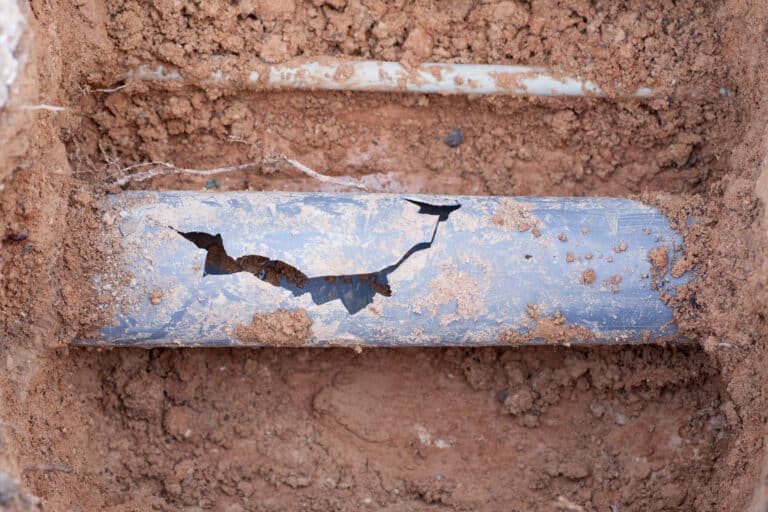Foundation Inspections
What sets Golden Gate Home Inspection apart is their meticulous attention to detail. Their experienced inspectors leave no aspect of a property unchecked, ensuring a comprehensive evaluation from foundation to roof. Their expertise enables them to identify even the smallest of potential issues, providing my clients with a clear understanding of a home's true condition.
Accuracy is paramount for Golden Gate Home Inspection. Their unbiased evaluations and transparent reporting give my clients confidence in making informed decisions. The detailed breakdown of findings, including both positives and areas of concern, empowers my clients to negotiate with certainty.
In my real estate business, Golden Gate Home Inspection has proven to be an invaluable asset. Their professionalism, attention to detail, and commitment to providing accurate and honest reports have earned my trust time and time again. My clients rely on their expertise, and I highly recommend them to any realtor or homebuyer in need of a top-notch inspection service.
When it comes to thorough and trustworthy inspections, Golden Gate Home Inspection is the go-to choice. Their dedication to delivering accurate and reliable assessments sets them apart, making them an indispensable resource for realtors and homebuyers alike.
2. Knowledgeable, Professional, Friendly Staff
3. Honest and Reasonable Quote
3A. Computer Payment Request same as Quote; No Bait and Switch!
3B. Computerized Payment was an easy process.
4. Inspector arrived on scheduled date and time.
4A. Inspector was Knowledgeable, Professional, Informative with a pleasant demeanor.
5. Inspection Report was returned within a few hours on the same day!
My total Experience with Golden Gate Inspections was phenomenally fabulous! I am one immensely satisfied customer and you will be too!
Vanguard Properties
www.thesanfranciscorealestateagent.com
-Tricia Tabayoyon, Realtor
clear explanations with supporting photographs.
To start with, Chris was fantastic in getting me an appointment during a period where inspections were in high demand. He not only did answer the phone after business hours, but he went beyond and above to accommodate me and my client.
Jake was the inspector that came to the property, and he was great to work with. He did the inspection in detail and thoroughly.
He worked diligently to inform me and my client and make sure that we understood the entire process.
The report came quickly, with such a friendly interface. So neat, easy to use, and to understand.
And to have them available to answer any questions we had, was a huge plus.
Two thumbs up for Jake and Chris.
I would 100% recommend it.
Personalized service, flexible with schedule, responsive with phone calls and emails, and they designed their portal which gives you a clear, easy to understand report with photographs, and color-coded recommendations.
The type of service from Golden Gate Home Inspections is what I like to call a 360 customer-oriented service. From the initial call, a follow-up email with a quote, a personalized text message with a reminder of the inspection day, a very professional and empathetic team (especially to first-time homeowners), and most importantly, the delivery format of the report in a customized portal reliable and easy to understand made me feel a significant level of support during the crucial moments of deciding whether or not you purchase this home.
A company with business integrity that provides you with trust from the very first moment. I called many places; my feeling was that they only want your money and don't care much about your concerns. They want to charge you way too much and try to up-sell you extra stuff. Chris, who I believe is the owner of GGHI after he figured that I was quite inexperienced in this matter, he immediately explained what the most critical aspects someone should see in a home before committing to do the purchase are. He cared about my money, Instead of trying to upsell another service, he said, "Let me take a look a that first, and then I'll tell you if you need to hire this additional inspection." i.e., Termites.
It's hard to find vendors who understand and value customers today, and especially in San Francisco. Chris understands the level of stress that a buyer is going through before purchasing a home. Therefore, after the inspection, he makes sure to explain to you what could hurt your wallet. The top things to watch out, the top things the home is doing great, and the potential cost of small details that would help you create an excellent judgment of the home state and if it is a go or a no go. In the end, this is our goal if the home is in conditions, if there are aspects that would cause me a tremendous among of money to fix and what are the things that I can fix on a small budget but not a hazard to my health or wallet. GGHI makes sure you get this right.
WATCH OUT! - It doesn't matter what San Francisco sellers or agents tell you about reducing contingencies to get the offer approved by the owner. Disregard that, if a homeowner or seller does not want to accept it what it is fundamentally your right, move on to a different home where the seller has better integrity. You have to do your inspection even though the seller already has provided you with one from his own.
Always get your inspection. I'll recommend going for GGHI; Chris would be a great partner that would help you make a diligent decision, which by the way, the delivery format and level of detail between the inspection from GGHI and the one made by the seller, its years light unbeatable.
Thank you, GGHI; you guys help me moving forward with my purchase.
I was impressed with the level of detail in the report, particularly the aging of depreciated items such as hot water heaters, electrical, and roofs. Also, Chris follows up with us to be sure if anything needed or questions.
What sets Golden Gate Home Inspection apart is their meticulous attention to detail. Their experienced inspectors leave no aspect of a property unchecked, ensuring a comprehensive evaluation from foundation to roof. Their expertise enables them to identify even the smallest of potential issues, providing my clients with a clear understanding of a home's true condition.
Accuracy is paramount for Golden Gate Home Inspection. Their unbiased evaluations and transparent reporting give my clients confidence in making informed decisions. The detailed breakdown of findings, including both positives and areas of concern, empowers my clients to negotiate with certainty.
In my real estate business, Golden Gate Home Inspection has proven to be an invaluable asset. Their professionalism, attention to detail, and commitment to providing accurate and honest reports have earned my trust time and time again. My clients rely on their expertise, and I highly recommend them to any realtor or homebuyer in need of a top-notch inspection service.
When it comes to thorough and trustworthy inspections, Golden Gate Home Inspection is the go-to choice. Their dedication to delivering accurate and reliable assessments sets them apart, making them an indispensable resource for realtors and homebuyers alike.
2. Knowledgeable, Professional, Friendly Staff
3. Honest and Reasonable Quote
3A. Computer Payment Request same as Quote; No Bait and Switch!
3B. Computerized Payment was an easy process.
4. Inspector arrived on scheduled date and time.
4A. Inspector was Knowledgeable, Professional, Informative with a pleasant demeanor.
5. Inspection Report was returned within a few hours on the same day!
My total Experience with Golden Gate Inspections was phenomenally fabulous! I am one immensely satisfied customer and you will be too!
Vanguard Properties
www.thesanfranciscorealestateagent.com
-Tricia Tabayoyon, Realtor
clear explanations with supporting photographs.
To start with, Chris was fantastic in getting me an appointment during a period where inspections were in high demand. He not only did answer the phone after business hours, but he went beyond and above to accommodate me and my client.
Jake was the inspector that came to the property, and he was great to work with. He did the inspection in detail and thoroughly.
He worked diligently to inform me and my client and make sure that we understood the entire process.
The report came quickly, with such a friendly interface. So neat, easy to use, and to understand.
And to have them available to answer any questions we had, was a huge plus.
Two thumbs up for Jake and Chris.
I would 100% recommend it.
Personalized service, flexible with schedule, responsive with phone calls and emails, and they designed their portal which gives you a clear, easy to understand report with photographs, and color-coded recommendations.
The type of service from Golden Gate Home Inspections is what I like to call a 360 customer-oriented service. From the initial call, a follow-up email with a quote, a personalized text message with a reminder of the inspection day, a very professional and empathetic team (especially to first-time homeowners), and most importantly, the delivery format of the report in a customized portal reliable and easy to understand made me feel a significant level of support during the crucial moments of deciding whether or not you purchase this home.
A company with business integrity that provides you with trust from the very first moment. I called many places; my feeling was that they only want your money and don't care much about your concerns. They want to charge you way too much and try to up-sell you extra stuff. Chris, who I believe is the owner of GGHI after he figured that I was quite inexperienced in this matter, he immediately explained what the most critical aspects someone should see in a home before committing to do the purchase are. He cared about my money, Instead of trying to upsell another service, he said, "Let me take a look a that first, and then I'll tell you if you need to hire this additional inspection." i.e., Termites.
It's hard to find vendors who understand and value customers today, and especially in San Francisco. Chris understands the level of stress that a buyer is going through before purchasing a home. Therefore, after the inspection, he makes sure to explain to you what could hurt your wallet. The top things to watch out, the top things the home is doing great, and the potential cost of small details that would help you create an excellent judgment of the home state and if it is a go or a no go. In the end, this is our goal if the home is in conditions, if there are aspects that would cause me a tremendous among of money to fix and what are the things that I can fix on a small budget but not a hazard to my health or wallet. GGHI makes sure you get this right.
WATCH OUT! - It doesn't matter what San Francisco sellers or agents tell you about reducing contingencies to get the offer approved by the owner. Disregard that, if a homeowner or seller does not want to accept it what it is fundamentally your right, move on to a different home where the seller has better integrity. You have to do your inspection even though the seller already has provided you with one from his own.
Always get your inspection. I'll recommend going for GGHI; Chris would be a great partner that would help you make a diligent decision, which by the way, the delivery format and level of detail between the inspection from GGHI and the one made by the seller, its years light unbeatable.
Thank you, GGHI; you guys help me moving forward with my purchase.
I was impressed with the level of detail in the report, particularly the aging of depreciated items such as hot water heaters, electrical, and roofs. Also, Chris follows up with us to be sure if anything needed or questions.
Foundation, Structural and drainage inspectors near you in the SF bay area
Foundation Inspections
- Certified home inspectors or licensed civil engineer
- Detailed home inspection reports
- Experienced Inspectors
- modern inspection tools
Golden Gate Home Inspections is one of the top providers of experienced home inspectors in the Bay Area. We provide foundation inspections for first-time buyers, sellers, homeowners, and anyone who solely wants to know more about their home or plan renovations.
We can also provide a Licensed Civil Engineer for a more in-depth Foundation and Drainage Assessment of the subject. This service is for those needing a more in depth assessment of the structural and drainage elements of the home or property. We recommend this inspection type for those who know or suspect that there is a structural issue. These reports generally come with detailed recommendations for repairing an issue with recommendations for contractors to reach out to for service.
If you are looking for a local foundation inspection near you, look no further, we serve San Francisco, Marin, San Mateo, Alameda, Contra Costa, and Santa Clara counties. We are your local property inspection team!
Our Foundation Inspections and reports are detailed and thorough with photographs of everything we take note of during the inspection and we can provide you with a walk-through at the end of the inspection to show you the issues that we have found during the inspection.
Certified Home Inspectors
All of our Home Inspectors are certified by either ASHI or InterNACHI to provide industry-standard Foundation Inspections for buyers, sellers, and existing homeowners.
Licensed Civil
Engineer
Our Licensed Civil Engineer is trained to perform Foundation and Drainage Asessments. Their report includes photos and descriptions of findings as well as prescriptions for repair.
Experience & Training
Our home inspectors have years of experience in the trades and perform additional training yearly to stay up-to-date on the latest home inspection tools and techniques.
Rapid Turnaround
We are an agile and accommodating inspection agency. Our normal turnaround is 2-3 business days for Foundation Inspections but we can do same-day reports for tight contingency timelines.
Schedule Inspection
To schedule an inspection or get a quote, just fill in the form below and someone from our team will reach out to you shortly.
Pricing Details
How Much Do Foundation Inspections Cost?
The price of a professional foundation inspection varies based on the square footage of the property,
and what’s included in the inspection. Our pricing starts at $635 for up to 2000 sqft.
Foundation Inspection
by Certified Home Inspector
starting at
$645
Our Foundation/Structural Inspection service, conducted by a Certified Home Inspector, offers a comprehensive examination of your home’s foundation and structural elements. This thorough inspection aims to identify any potential issues with the home’s foundation, such as cracks, water damage, or shifting that could suggest underlying problems.
1 Certified Home Inspector
1 Hour
- Visual Inspection of the Exterior
- Interior Evaluation
- Water Damage Assessment
- Drainage Check
- Soil Analysis
- Inspection of Supporting Structures
- Previous Repair Assessment
- Check for Pest Damage
❌ Does not include structural calculations or engineering analysis
❌ No measurement of foundation movement
❌ No official engineering report or recommendations for remediation
❌ Limited to a visual assessment; does not include advanced diagnostic tools
❌ Cannot provide assurances on structural integrity beyond a general inspection
Foundation & Drainage Assessment
by Licensed Civil Engineer
starting at
$845
Our Foundation/Structural Inspection service conducted by a Licensed Civil Engineer is a specialized inspection that delves into the critical components of your property’s foundation, assessing for any signs of distress, cracks, settling, or other structural anomalies that could impact your home’s stability and safety. Utilizing advanced techniques and the keen eye of an experienced Civil Engineer, we provide a detailed evaluation of the structural health of your home, identifying potential issues and offering expert recommendations for remediation.
1 Licensed Civil Engineer
1-2 Hours
- Visual Inspection of the Exterior
- Interior Evaluation
- Measurement of Foundation Movement
- Water Damage Assessment
- Drainage Check
- Inspection of Supporting Structures
- Previous Repair Assessment
- Check for Pest Damage
- Elevation Mapping
Not what you need? Check out the other home inspection services that we provide.
Foundation inspections are an important part of home ownership and any real estate transactions
What is a Foundation Inspection?
A foundation inspection is a detailed evaluation of the foundation of a building or a home to assess its current condition and identify any problems or potential issues. This inspection is usually conducted by a Professional Home Inspector or Licensed Civil/Structural engineer.
Here are key elements typically examined during a foundation inspection:
- Structural Integrity: The inspector checks for cracks, shifts, and other signs of structural weakness in the foundation. This includes examining the footing the walls, and the slab.
- Water Damage and Drainage: Inspectors look for signs of water damage, such as water stains, mold, or efflorescence (a white, powdery substance that can form on concrete). They also assess the effectiveness of drainage systems around the foundation to ensure they are directing water away from the building.
- Cracks and Gaps: Not all cracks are significant, but some can indicate serious structural problems. Inspectors evaluate the size, length, and location of any cracks.
- Basement or Crawl Space: If applicable, the inspector will check these areas for any signs of issues related to the foundation.
- Previous Repairs: If there have been previous foundation repairs, the inspector will evaluate their current condition and effectiveness.
After the inspection, the inspector provides a detailed report outlining any problems found and may recommend repairs or preventive measures. This inspection is crucial for homeowners to maintain the structural integrity of their property and is often required in real estate transactions to inform potential buyers about the condition of the property.

Our Foundation inspections are detailed and comprehensive
What does a Foundation Inspection include?
Visual Inspection of Exterior
Checking the outside of the foundation for cracks, shifts, bulges, or other signs of damage.
Interior Evaluation
Examining basement or crawl spaces for any structural issues or signs of movement, such as cracks in walls or uneven flooring.
Water Damage Assessment
Looking for signs of water intrusion, such as dampness, water stains, mold, or efflorescence on walls or floors.
Drainage Check
Evaluating the effectiveness of the property’s drainage systems to ensure water is being properly diverted away from the foundation.
Inspection of Supporting Structures
Reviewing the condition of piers, beams, joists, and other supporting structures if accessible.
Previous Repair Assessment
Evaluating the quality and effectiveness of any previous foundation repairs.
Frequently Asked Questions about Foundation Inspections
Frequently Asked Questions about Foundation Inspections
A foundation inspection is a thorough examination of your home’s foundation to assess its condition, identify any issues, and recommend necessary repairs. It involves checking for cracks, structural weaknesses, water damage, and other potential problems.
Homeowners, potential buyers, and sellers can all benefit from a foundation inspection. Homeowners should consider regular inspections to catch issues early.
Buyers often get an inspection before purchasing a home to ensure there are no hidden foundation problems. Sellers might get an inspection to address any issues before listing their property.
Ideally, you should get a foundation inspection if you notice signs of foundation problems (like cracks in walls or uneven floors), before buying a home, after an earthquake or severe weather event, or as part of regular home maintenance (every few years).
The duration of a foundation inspection can vary, but most inspections take between 1 to 3 hours, depending on the size of the home and the complexity of the inspection.
Inspectors look for signs of damage or weakness, such as cracks, water damage, improper drainage, soil conditions, and the integrity of supporting structures. They also assess the condition of previous repairs.
Ensure easy access to your foundation, including the basement or crawl space. Remove any items blocking the foundation walls and ensure the inspector can move around the exterior of your home freely.
Costs vary depending on the location, size of the home, and the inspector’s experience. Typically, foundation inspections range from $645 to $1,000+ depending on whether it’s done by a Certified Home Inspector or a state licensed Civil Engineer and also the size and complexity of the home.
If issues are found, the foundation inspector will provide a report detailing the problems and recommending solutions. You may need to hire a foundation repair service to address these issues.
While you can do a basic visual check, a professional inspection is recommended. Foundation inspectors have specialized training and experience to identify problems that might not be obvious to the untrained eye.
A standard home inspection includes a basic check of the foundation, but it will not be as in-depth as a specialized foundation inspection with a civil or structural engineer. If you have specific concerns about the foundation, an inspection by a civil or structural engineer is advisable.
What people are saying
She also explained her reasons for the findings and I was able to correct or improve the most important issues. Veronica is personable, articulate, and most of all, knowledgeable in her craft. I would highly recommend Golden Gate Inspections for your reporting needs.
Furthermore, Chris also followed up to check on how the inspection went and was super responsive and helpful in working me into their schedule. I would recommend them!
Protect Your Investment.
Schedule a Foundation Inspection Today
Home Inspection Tips
We provide home inspections for home buyers, home sellers, and realtors.
Preparing for your home inspections can help ensure that the inspection goes smoothly.

Tips for Home Buyers
As a homebuyer, we want to make sure that you get the most out of your home inspections. Here are some quick tips for home inspections for buyers:
• Attend the Inspection: Attending the home inspection is a good way to see the issues firsthand and get explanations about causes and possible solutions.
• Come Prepared: Write down any specific concerns about the property and/or questions to ask the inspector.
• Check Property Disclosures: Review the seller’s property disclosures before the inspection. Make sure to inform the inspector so that they can inspect those items specifically.
• Let the inspector work: Try to avoid unnecessary interruptions to the inspector so that they can focus and provide you with a thorough home inspection report.
• Ask questions at the end: Make sure to ask any questions that you have before the inspector leaves.
Getting a quality Home Inspection is an essential part of purchasing a home. This key part of the process of purchasing a home should never be overlooked as it can be the difference between a great purchase and a bad decision.
Our home inspections are an all-encompassing test of the condition of your home. We check all of the major systems of the home, test all of the appliances, and report on the general condition of the property. Because the purchase of a new home is such a significant decision it is essential that you use the home inspection to detect any costly repairs that may need to be made and to find out the true condition of the home. In the San Francisco Bay Area, many homes are decades old and have had multiple owners or tenants so you want to keep that in mind.
If you are concerned about the foundation, we can help. We have deep experience examining and assessing the many foundation types found here in the Bay Area and providing guidance on issues we may find. We have found through our foundation inspections that most homes in the bay area have some cracking in the foundation but not all cracking means you shouldn’t buy a home or you have to undertake a major foundation repair work. Let one of our experienced foundation inspectors take a look and give you some insight.
Termite Inspections are also recommended as it is focused specifically on wood-destroying pests and goes beyond the surface to find problems. Termite inspection reports also include pricing if any wood-destroying pests have been identified. The work order will have pricing for the eradication of the pests plus the repair of any wood damage they have caused.
Plumbing, roofing, wiring, and insulation issues can all be detected by one of our certified home inspectors and this can save you hundreds if not thousands of dollars on repairs. At Golden Gate Home Inspections we are in the business of not only saving you money but also helping you feel confident about your purchase and settling you into your new home in the San Francisco Bay area.

Tips for Home Sellers
Home inspections for Sellers or pre-listing inspections can help you understand any deficiencies that might affect your purchase price.
Selling your home can be stressful and the last thing you want is surprises. Surprises can negatively affect your transaction.
Below are some tips that can help you get prepared for your home inspection and avoid receiving a home inspection report that is full of basic maintenance issues. We hope that these lists help you sell your home quickly and with the least amount of hassle.
Here are some quick tips we recommend for your pre-listing inspection:
Before Inspection Day
Exterior
- Clean debris from roof coverings, gutters, downspouts, and drains
- Re-caulk exterior windows and doors
- Repair any damaged masonry on walkways or steps
- Repair any minor defects on the exterior surfaces
- Replace any missing or damaged shingles on the roof
- Seal driveway cracks
Interior
- Repair leaking faucets and fixtures
- Repair cracked and broken window panes
- Have chimneys cleaned
- Have a licensed electrician inspect receptacles and switches, then make any necessary repairs. Make sure to have GFCI outlets installed within 6′ of any water source
- Re-caulk around bathtubs and sinks
- Arrange service for your HVAC unit
- Replace batteries in smoke and carbon monoxide detectors
- Loosen any windows that are painted shut
- Make sure all doors and windows open and shut smoothly
Disclosures and Warranties
- Disclose any past fires, floods, moisture intrusion events and major repair work
- Provide any building permits or plans for past or planned renovations
- Provide invoices and warranties for any major improvements, such as, roofs, furnaces, hot water heaters, and appliances
Inspection Day
- If the buyer will be present, we recommend that you be away from the house for the duration of the inspection
- Clear entrances to any crawlspaces, attics, basements, storage sheds, or garage
- Clear pathways to the furnace, water heater, and air conditioner
- Provide keys for any locked doors
- Keep any pets in a safe location or remove them from the property if necessary

Tips for Listing Agents
Home inspections are a key part of most real estate transactions, whether buying or selling. As a real estate agent, it’s important to understand how to navigate this process, which can help your clients get the most out of their home inspection. In fact, quality pre-listing home inspections can provide a smoother sales process with fewer headaches and stress. These inspections can help you get maintenance performed before the property hits the MLS and you have offers coming in while preserving your negotiating position.
Listing agents can play an important role in helping their client prepare their homes to go on the market. Staging and cosmetic improvements may come top of mind in terms of creating additional perceived value for the home. This is normal. However, sellers should also consider preparing their homes for the home inspection.
The results of pre-listing home inspections can affect the transaction by giving buyers the opportunity to use the issues located in the inspection report as leverage to negotiate a lower purchase price. And, in some cases, the deal may fall apart because of some of the findings in the home inspection.
Listing agents can help mitigate the need for these negotiations by helping your seller get prepared for a successful home inspection. By helping your client get prepared for the home inspection, you can help them avoid the headaches that can come from unexpected surprises.
So, aside from the cosmetic improvements and staging that you are planning, here are some other items to consider:
Safety Hazards
- Test all Smoke Detectors, replacing batteries if necessary
- Test or install CO Detectors. Make sure that one is present in between the kitchen and the bedrooms
- Look for any electrical issues: GFCI outlets installed within 6′ of a water source, electrical outlets without covers, open junction boxes
- Look for any mold-like substances and repair as possible
- Look for any Trip Hazards on walking surfaces, interior or exterior, as well as steps and handrails
- Open and close all windows in the property as they are a form of egress in case of emergency
Other Issues
- Check for ceiling stains as they can indicate current or previous water damage issues
- Check for leaky faucets, slow drains, and running toilets
- Look for, repair, and paint any rotting exterior wood. This can alert you to signs of wood-destroying pests or structural damage prior to listing
Making repairs and getting those items cleared out of your home inspections report is a crucial step before uploading the report to the MLS.
With Golden Gate Home Inspections, we provide you with several ways to get your home inspection report cleared. Make sure to speak with our customer service team when you book your home inspections. They can provide you with the details necessary to list the property with as clean a report as possible.

Tips for Buyers Agents
Detailed and thorough home inspections can help provide your buyer with confidence that they need to move forward, maintenance tips, provide leverage during the negotiations, and avoid costly legal issues after the transaction is completed. Smart realtors use home inspections as a protective tool.
As a real estate agent, it’s important to understand how to navigate this process, which can help your clients get the most out of the home inspection. It can also help build trust between agents and their clients.
When it comes to buyer’s home inspections, one of the primary roles that you can play is in educating your buyer about the importance of getting an inspection.
This includes some of the following items:
- Explaining the home inspection process and why it’s important
- Setting expectations for your client
- Helping your buyer understand the results of the home inspection report (don’t focus on the trivial)
- Please DO attend the inspection
- Please DO convey any specific issues you are aware of from the disclosures to the inspector so that they may take a deeper look
- Please DON’T invite too many people to the inspection as this can be a distraction and cause items to be missed
In summary, a positive home inspection will pave the way for a smoother closing. Home inspections provide your clients with valuable knowledge and give your clients a chance to have the key issues noted in the report repaired. And in the end, your client will appreciate having a full understanding of the condition of their new home.
The Home Inspector’s Blog

5 Critical Changes in California’s Home Insurance Landscape
Explore solutions to California’s home insurance crisis with our in-depth analysis on navigating insurer pullbacks, understanding regulatory impacts, and employing strategic homeowner actions to secure coverage.

Essential & Overlooked: The Complete Homeowner’s Guide to Sewer Lateral Inspections
Discover the unseen yet vital aspect of home maintenance in our comprehensive guide on Sewer Lateral Inspections. Learn why these inspections are crucial for every homeowner, how they can save you from costly future repairs, and the legalities involved in maintaining your property’s sewer system. This guide delves into the importance of regular professional assessments, the risks and limitations of DIY inspections, and essential tips for preventative maintenance. Stay informed and protect your home by understanding the intricacies of sewer laterals – a key component of your property’s plumbing health.

Winter Home Inspection Checklist: What Every San Francisco Homeowner Should Look For
Winter Home Inspection Checklist: What Every San Francisco Homeowner Should Look For

